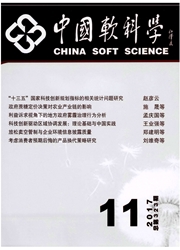

 中文摘要:
中文摘要:
本文构建了一个国际储备在流动性储备资产与风险资产之间战略配置的随机优化框架,并基于期望效用理论和古诺模型,分别探讨了货币当局的风险偏好类型和国家间竞相持有储备对优化选择的影响。研究结果表明:进一步推进投资渠道多元化,增加对重要资源性产品国际市场的话语权和定价权,是我国储备未来的战略调整方向;风险规避型管理者偏爱更多的流动性;国家间竞相持有储备促使我国或努力降低成本或进一步减持储备,以遏止"以己为壑"结果的发生。
 英文摘要:
英文摘要:
We developed a stochastic optimization framework that helps to quantify a country's optimal level of liquid international assets and risk assets.Implications of investment risk and interaction of reserve policy between countries to the optimization result are then analyzed based on expected utility theory and Cournot model respectively.The numerical method was used to obtain optimal allocation and the strategic adjustment reorientation of international reserves.The results show that it is urgent to further diversify investment channels of China's international reserves.Monetary authorities prefer more liquidity when the risk factors of investment are considered.Competitive holding of countries make us have to reduce holding costs or further reduce reserve holdings to avoid "beggar yourself".
 同期刊论文项目
同期刊论文项目
 同项目期刊论文
同项目期刊论文
 Simulation of exit choosing in pedestrian evacuation with consideration of the direction visual fiel
Simulation of exit choosing in pedestrian evacuation with consideration of the direction visual fiel A new model for studying the SO-based pre-trip information release strategy and route choice behavio
A new model for studying the SO-based pre-trip information release strategy and route choice behavio A cellular automaton model of traffic considering the dynamic evolution of velocity randomization pr
A cellular automaton model of traffic considering the dynamic evolution of velocity randomization pr Continuum modeling of park-and-ride services in a linear monocentric city with deterministic mode ch
Continuum modeling of park-and-ride services in a linear monocentric city with deterministic mode ch Route choice in pedestrian evacuation under conditions of good and zero visibility: Experimental and
Route choice in pedestrian evacuation under conditions of good and zero visibility: Experimental and Modelling heterogeneous drivers; responses to route guidance and parking information systems in stoc
Modelling heterogeneous drivers; responses to route guidance and parking information systems in stoc Study and Application of Credit Scoring Models to Appraisal of the Loan to Chinese Companies with Un
Study and Application of Credit Scoring Models to Appraisal of the Loan to Chinese Companies with Un 期刊信息
期刊信息
